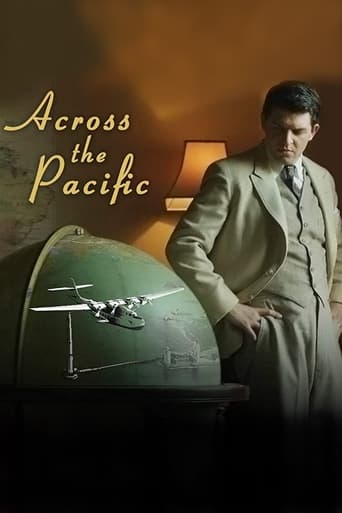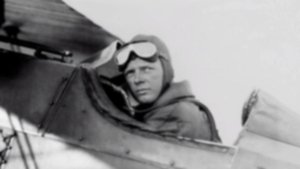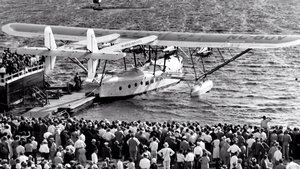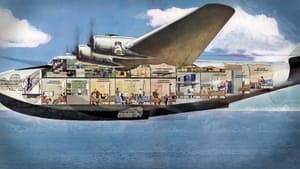
Across the Pacific (2020)
Tells the story of a great milestone in aviation history: the 1935 crossing of the Pacific Ocean by a Pan American Airways flying boat known as the China Clipper. The documentary series recounts the development of this technological innovation – led by Pan Am’s chief executive Juan Trippe, pilot Charles Lindbergh, airplane engineer Igor Sikorsky and radio engineer Hugo Leuteritz – with dramatic re-enactments, interviews with historians and biographers, and archival photographs, newsreel clips and film.
-

Episode 1 - Airborne
Release Date: 2020-05-18The film’s four main characters – airline executive Juan Trippe, pilot Charles Lindbergh, airplane builder Igor Sikorsky and radio engineer Hugo Leuteritz – separately struggle to find a place in post-World War I aviation. Their struggles illuminate the challenges all aviation pioneers face in these early, uncertain days. After repeated setbacks, the four men join forces and, capitalizing on the Air Mail Act and the aviation mania triggered by Lindbergh’s 1927 transatlantic flight, set out to build an airline to South America: Pan Am.
-

Episode 2 - Latin Laboratory
Release Date: 2020-05-25As they push southward, Trippe, Sikorsky, Lindbergh and Leuteritz build larger flying boats, harness radio to navigate safely over great distances, and, with help from the U.S. government, outwit all competing airlines to dominate service to Latin America and launch the global air tourism industry. But all of this is merely preparation for their ultimate goal: flying the oceans. Trippe spends six years carefully laying plans for an Atlantic crossing – only to have his hopes dashed when Britain refuses to let Pan Am’s planes land because their own planes can’t make the ocean crossing. With $2 million in new planes on order, Trippe is stymied, with no ocean to cross.
-

Episode 3 - Another Ocean
Release Date: 2020-06-01With his path across the Atlantic blocked, Juan Trippe surprises even his own staff by turning to the Pacific. Defying the skeptics, Pan Am builds an airway to Asia, allowing its airplanes to hopscotch across the world’s widest ocean by landing at five stepping stone islands: Hawaii, Midway, Wake Island, Guam and the Philippines. Hugo Leuteritz’s radio direction finders point the way, and Igor Sikorsky’s latest flying boat, the S-42, pioneers the route before giving way to the Martin M-130 known as the China Clipper. Within two years, Pan Am is offering regular passenger service to Hong Kong, connecting America and the Asian mainland. Air service from New York to London begins in 1939, completing a chain of airways encircling the globe.
